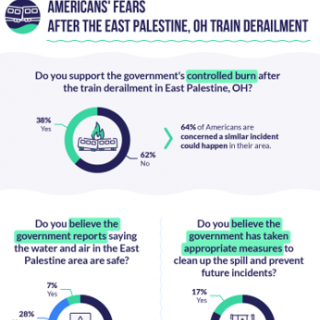Advertisement
What are GMOs
For those who don’t know, GMOs (genetically modified organisms) are living organisms whose genetic material has been artificially manipulated in a laboratory which causes unstable combinations of plant, animal, bacteria and viral genes that do not occur in nature. There are two types of GMOs: pest producers which kill insects by taking a gene from a bacterium and injecting it into the DNA of a seed, which produces a toxin lethal to insects (ie, Monsanto’s BT corn); and an herbicide resister which after altering a plant’s gene makes it immune to weed killers (ie Roundup-ready soy).
Are GMOs safe?
One two-year study by Dr. Seralini, Professor of The University of Caen, in France, showed that glyphosate found in Roundup "disrupts the endocrine system and the balance of gut bacteria... damages DNA and is a driver of mutations that lead to cancer." In addition, other diseases and imbalances such as MS, Alzheimer’s, Parkinson’s, allergies, autism and an overall lower immune response has been linked to Roundup.
Most developed nations do not consider GMOs to be safe. In more than 60 countries around the world, including Australia, Japan and all of the countries in the European Union, there are significant restrictions or outright bans on the production and sale of GMOs. Russia, for example, suspended import of US GM corn after a study revealing its link to cancer.
Accidental animal experiments also cause an alarm when it comes to GMOs. In a three year span in India, almost 2,000 sheep died from grazing on GM cotton fields, along with illnesses and deaths of the villagers themselves.
And coming from the peer-reviewed Journal of Organic Systems, pig farmers have found increased production costs and escalating antibiotic use when using GM crops. In some operations, on top of the livestock death loss being high, there are unexplained problems including spontaneous abortions, deformities of new-born animals, aggressiveness and severe inflammation in stomachs and in female uteruses. Then because of the porcine/human physiology similarities, one cannot be too cautious as to what GMOs are/could be doing to us.
Do GMOs work?
Putting it plainly—no. Going against nature always doesn’t work. Short-term, IF the conditions are favorable, the GM yields are comparable or higher than regular conventional, but when it comes to long term, a 30 year study done by Rodale showed organic --without ANY chemicals—had almost identical yields as conventional. And according to the Farming System Trial, organic is the winner when it comes to enduring harsh conditions such as drought, with a 31 percent higher yield.
Haiti, the poorest country in the western hemisphere even refused Monsanto’s 45-ton seed “gift” after their devastating hurricane. Calling them the “seeds of death,” they burned the seeds and pulled up the “inferior” plants that had started to grow. For a country so poor and struggling with astounding amount of hunger and malnutrition they weren't desperate enough to fall for the Monsanto trap seeing that it wasn't working and knowing that it wouldn’t work.
In addition, ever since the introduction of pesticides and herbicides and now especially since the introduction of GMOs, the pest and weed resistance is higher than ever. Superbugs and superweeds are pervasive and seem unstoppable. Thanks to our messing with nature, over 500 insect species are now resistant to the very chemicals that were made to kill them. On the flip-side two independent studies show that honey bees are instead feeling its effects and are withering in scary numbers. Then just as a side note, when the argument arises that we need to use GMOs to save the world from hunger; we, as of today, have two times the amount of food needed to feed the world. A lot of the world’s hunger problem comes from waste and redistribution. So it’s not even needed if it did work.
What about the environment?
To add more about the environment, long-term effects are alarming. The amount of greenhouse gases from conventional agriculture are 40 percent higher than organic, and, for example, the amount lost for each bushel of corn is 44 percent of topsoil vs organic, which, in contrast, recharges the topsoil. The use of toxic herbicides like Roundup has increased 15 times since GMOs were introduced which runs into rivers harming fish, marine ecosystems and soil organisms. Then of course, biodiversity is lost, with its long-term effects unknown, but if what we see gives us a clue, already 50 percent of the monarch population is gone due to its natural habitat being destroyed.
Are GMOs ethical?
GMOs are a “new form of slavery” says Vatican Cardinal Peter Turkson. Since seeds are patented by the agro-chemical companies who happen to be the biggest seed and chemical companies, and who control over 55 percent of the world-wide proprietary seed market, this poses even more threats to the world as a whole. First, to own nature, in itself, goes against anything sacred. Then, seeds are made to only last one growing season so have to be purchased each year with the price being 5 times higher than normal seed. No seed saving possible. Getting its way in the New York Times, the news of the Indian debt to Monsanto has been so high and ever increasing, that suicide seems the only way out for many—so much so, that’s it is called “The Plague of Suicide.” There’s no way out—the agro-companies many times give a loan to the farmers that are impossible to pay back. And many times countries like India are tricked into buying into the whole scheme and don’t realize until it’s too late.
To put the icing on the cake, if a farmer opts out on the Monsano, et al, system, and by chance a GM seed, or pollen from one field contaminates another non-GMO field even miles away, its owner is many times sued for illegally growing a patented product. Threats of a lawsuit and bullying into buying the companies’ GM seeds and chemicals can shut the farmers up; other times, for the farmers who stand their ground, the lawsuit wipes them clean out forcing them to give up their life-long practice. Is this for the good of the farmer? For mankind?
Then last but not least on the ethical side, here are a few interesting tidbits.
1. The biotech industry spent $547,500,000 lobbying Congress from 1999-2000 (Food and Water Watch)
2. Over 300 former Congressional and White House Staff members are now employed by biotech firms as lobbyists (Food and Water Watch)
3. To show what some consider as fair: Michael Taylor, “Mr. Revolving Door” was first a staff attorney for the FDA, then joined the law firm representing Monsanto, then went back to the FDA overseeing the Monsanto’s rBGH (bovine growth hormone) issue, then to the USDA, then back to Monsanto, and is now the second highest seat in the FDA...and is currently fighting for the deregulation of GM salmon and alfalfa.
Is this ethical?
EEK! What can I do?
1. Go organic or shop NonGmo Verified (go to nongmoproject.org for more information on what is and is not GM).
2. Get to know the companies that use GMOs and who oppose labeling of GM foods and boycott them and their parent companies (nongmoproject.com) and let them know why.
3. Stay away from all GM products and their derivatives by checking labels. If not organic these are up to 95 percent likely to be GM:
a. Corn, soy, canola, sugar beets (must say “cane sugar” to be ok), cotton/cottonseed oil, yellow crooked-neck squash, zucchini, U.S. papaya, alfalfa, farmed or inland salmon, non-organic meats and dairy.
4. Support labeling movements (because we have a right to know). Write and talk to your political leaders about labeling. When going out to eat, eat at GMO-free restaurants or ask what on the menu is GMO-free. Educate yourselves and others through movies, internet sites and seminars.
It’s up to us, with our dollar, to make a difference. In order to protect the way of our future and for those yet to come, it’s our duty to do our part, while we all benefit from it in the interim. The time is now.
Portia Yiamouyiannis is the owner of Portia’s Café, an all GMO-free café serving plant-based, gluten-free foods. For more information contact portiascafe.com or visit the cafe at 4428 Indianola Ave.



